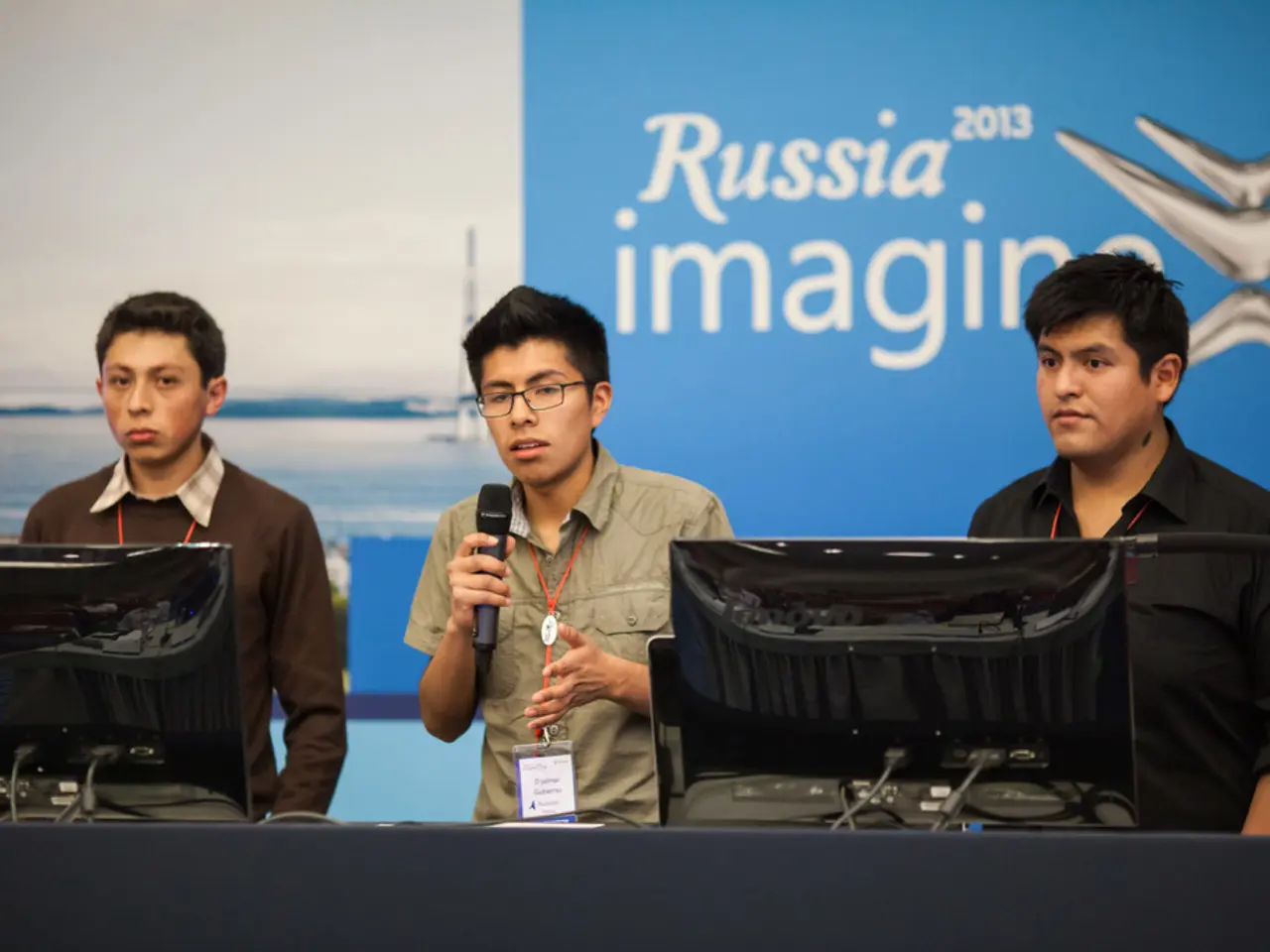EU leaders endorse Ukraine's future, contrasting with Orban's stance, preceding the Trump-Putin meeting in Alaska
In the lead-up to the highly anticipated Alaska summit between U.S. President Donald Trump and Russian President Vladimir Putin, a joint statement was issued by the majority of European Union leaders. However, Hungary has taken a distinct and somewhat contrarian stance, distancing itself from the common EU position on the August 8 Peace Declaration for Ukraine.
Unlike most EU countries, Hungary is not supporting the common EU statement backing Ukraine's territorial integrity. Despite agreeing to further EU sanctions on Russia in July 2025, Hungary has avoided endorsing collective EU diplomatic statements emphasizing that peace must respect Ukraine’s sovereignty and international law.
Hungarian Prime Minister Viktor Orban has gone further by declaring that “Russia has won the war” in Ukraine, signaling a pessimistic and arguably pro-Russian viewpoint distinct from the broader Western consensus.
In contrast, the majority of EU leaders and U.S. officials emphasize that peace negotiations should not occur without Ukraine’s participation, reject territorial concessions forced by military aggression, and advocate continued support for Ukraine. They argue that any peace negotiations must take place in the context of a ceasefire or reduction of hostilities.
The U.S.-Russia summit in Alaska is seen by Western experts as an opportunity to push for progress toward peace but not at the cost of Ukraine’s sovereignty. Experts warn against Russian maximalist demands and argue for increased sanctions and military aid for Ukraine to strengthen its position.
The following table summarizes the key differences in stance between Hungary and the EU/US majority:
| Aspect | Hungary | EU / U.S. Majority | |----------------------------------|--------------------------------------|---------------------------------------------| | Support for common EU statement | Does not back the statement | 26 EU countries support | | View on Ukraine territorial integrity | Ambiguous; no clear support for enforcing | Strong support; no territorial changes by force | | Orban's declaration (Aug 2025) | “Russia has won the war” | Rejection of that view; emphasis on Ukraine’s sovereignty | | Approach to peace negotiations | More Russia-leaning; skeptical about Ukraine’s role | Peace must include Ukraine; reject concessions forced by aggression | | U.S.-Russia summit role | Presumed neutral or favorable to Russia | Push for sanctions, support for Ukraine, and warn Russia |
Hungary’s stance places it apart from most Western allies regarding the Ukraine conflict and peace efforts centered on the August 8 declaration and the Alaska summit. It remains to be seen how Hungary's position will influence the broader dialogue and potential outcomes of the U.S.-Russia summit.
- Hungary's position on the August 8 Peace Declaration for Ukraine contrasts with the majority of EU countries, as Hungary has chosen not to support the common EU statement backing Ukraine's territorial integrity.
- Hungarian Prime Minister Viktor Orban's statement in August 2025, that "Russia has won the war" in Ukraine, presents a perspective that differs significantly from the broader Western consensus.
- The EU/US majority, on the other hand, emphasizes on peace negotiations that include Ukraine's participation, reject territorial concessions forced by military aggression, and advocate for continued support for Ukraine.
- The general news and political discussions regarding the U.S.-Russia summit in Alaska centers on the potential for progress toward peace, but also warns against Russian maximalist demands and the need for increased sanctions and military aid for Ukraine.







